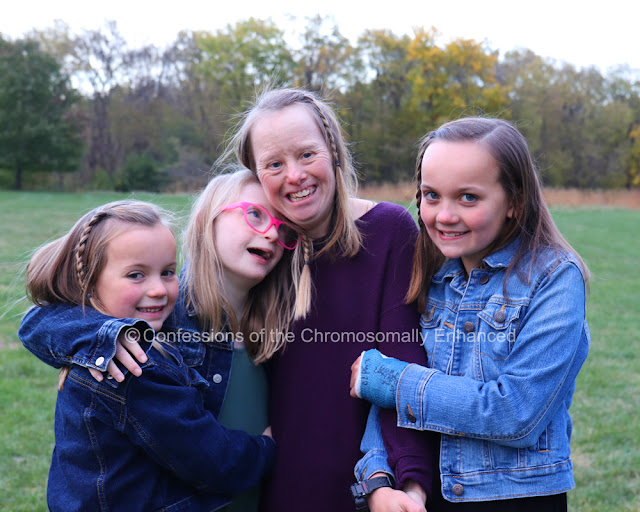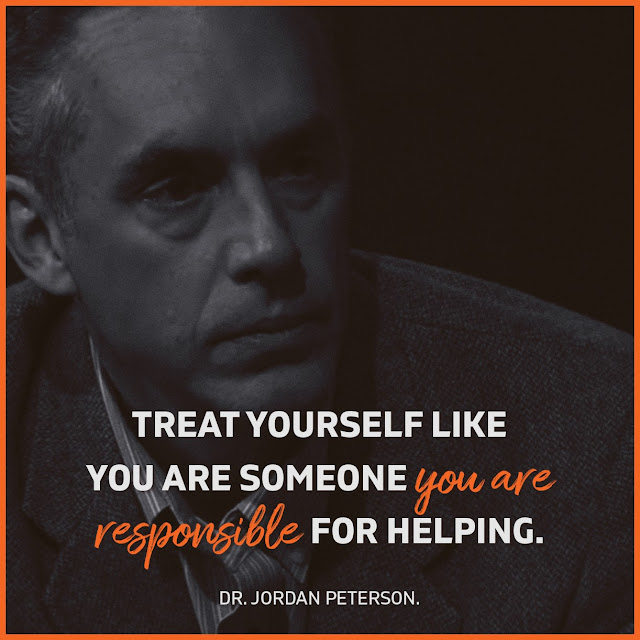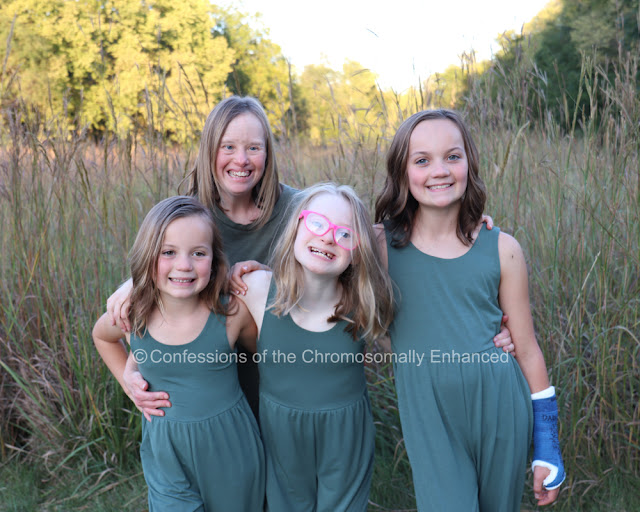I used to tell my mom that she should have had ten kids. She was so maternal and she absolutely lived to take care of others. I did not inherit this gene. And now that I'm Leanne's caretaker, I realize that God knew what He was doing when He gave Leanne to my mom: she's the equivalent of ten kids! Ha! I'm teasing...a little. But in all honesty, Leanne's presence in our home has opened my eyes to a whole new perspective: Caregiver.
The caregiver role can manifest from many different scenarios: parenthood, caring for an aging/elderly parent, caring for a sick spouse, and on an on...For me, personally, the distinction came when Leanne moved in. It changed everything. My children were already established in a routine. Our family of five was a well-oiled machine. Enter Leanne: it was a crash course in legal guardianship, Medicaid waivers (and wait lists), healthcare specialties (PCP, Urologist, Psychologist, Audiologist, ENT, GI, etc.), employment opportunities, volunteer opportunities, day programs, fitness programs, socialization opportunities, transportation, scheduling...
In a way, it was a welcome distraction from my shock and grief over my mom's illness and passing. I did not have time to wallow; I had so much to figure out. Add a couple of health scares and a global pandemic, and I quickly familiarized myself with the notion of "caregiver fatigue."
2. Alcohol/Drugs - Another big component of my lifestyle overhaul involved giving up alcohol. What started as a health/weight loss effort, turned into a larger conviction once I started researching alcohol's effect on the human body. I used to truly believe that Type A, neurotic perfectionists like myself genuinely benefitted from the relaxation effects of alcohol. What I learned is that alcohol was actually increasing my anxiety and sleep disturbances. I haven't had a drink in more than a year, and at this juncture in my life, abstaining is the best decision for me. If you're curious to read more, I highly recommend the book "Alcohol Explained" by William Porter. And if you're more of a podcast/YouTube person, check out Annie Grace. And while I would welcome anyone to look into the benefits of reducing alcohol intake, I would also encourage people who are under great stress to discuss phamaceutical interventions with their physician. In much the same way a diabetic requires insulin to manage blood sugar, our psychological health can benefit greatly from the right prescription drug; even if it's just to help us make it through a temporary period of emotional duress.
3. Outdoor time - I read books on this, too, but I'll spare you the boring details. For me, I think that being in my house is a constant reminder of the chores I have to do: laundry, cleaning, sorting through the mail, tending to the plants, organizing closets...the list never ends. When I'm in my car (which is much of my day), I'm reminded of the jam packed schedule and time constrains resulting from transporting four people to appointments and activities. But when I'm outdoors, be it on a walk, gardening, or even taking my kids to the pool, my brain can truly be free of the chorus of responsibilities and truly just enjoy relaxing in nature.
Since my mom's passing, I have found that turning to faith can offer strength, comfort, and enlightenment. I'm fortunate to have many tremendous faith role models, and I find that the more time I spend within my religious community, the more I receive comfort in God's message. At a recent faith formation gathering, another parishoner shared a story about how he lost his mother at a very young age. In listening to him tell his story, I felt a whole new level of healing in my grief journey. This year, I'd like to grow in faith even more.
7. Help Someone Else - This may sound counterintuitive that you need to seek out someone else to help when you're already drained from caregiving, but hear me out...Sometimes emotionally extracting myself from my own situation and investing in acts of service towards others really reframes my mindset. In the Prayer of St. Francis, it says "For it is in giving that we receive." And sometimes that intrinsic boost that comes from acting in service to another person is just the tonic required to transition from feeling depleted to feeling fulfilled.
8. Ask for help - This particular point generated so much feedback from caregivers on Instagram. My experience has been that when things become overwhelming, I know I need to move heaven and earth to build a support system. We have never lived in the same state as our family, and therefore Travis and I have always had to find outside care providers. During the pandemic, Leanne's activities were obliterated and she was stuck at home day in and day out. Her mental health decline became very apparent. She was withdrawn, agitated, and lost. We tried virtual talk therapy and Leanne's communication challenges made it ineffective. My breaking point came over the summer when Travis was out of town (when one element is out of place, Leanne usually struggles) and her negative attention-seeking behaviors were keeping everyone awake at night and had me really questioning how much more I could take. I ended up going on NextDoor, care.com and even contacting the church to try and find someone who could help. Leanne needed to get out of the house. She needed activities and attention beyond what I could provide. My kids needed a mother who wasn't sleep deprived and short fused. And I needed a break, too.
It took awhile, and it cost some money, but we finally found a care provider who could take Leanne out of the house for 18 hours a week and transport her to community engagements including Special Olympics, fitness, volunteering, and other recreational activities. This has made an enormous difference for Leanne and for myself.
Many parents are hesitant to trust anyone else to provide care for their children, and I understand that. However, as the dependent individual reaches adulthood, we have to learn to let go. Leanne is in the community for work and I cannot supervise her there. She relies on special needs transportation services and I cannot supervise her there. If she attended a day program, I would not be able to hire and supervise every staff member. And if she lived in a group home - forget it! I have found that it is worth the time and effort to search for the right care provider, and to train that person, for the peace of mind that comes from having a break from the 24/7 demands of care. Furthermore, your loved one's life may be greatly enhanced by forming a relationship with someone other than yourself.
If you have a friend or family member who is a caregiver, please volunteer - insist - on picking up (or staying with) the individual who needs care so the caregiver can have a break. Some individuals thrive on consistency so maybe you could commit to a regular weekend schedule - a 2 hour outing every Sunday. I assure you that this is one of the most beneficial things you can do to show your support to a caregiver.
9. Build a Tribe - There is an immense relief in venting to someone who "gets it." In recent years, I watched a relative become a caretaker to his wife when she was diagnosed with dementia. He found an Alzheimer's Support Group and he attended the meetings faithfully. Now that she's gone, he attends a grief support group. Likewise, I have made numerous friends who have children and siblings with Down syndrome. Some of my closest "Ds Community Friends" have been found thanks to social media. It's remarkable how many commonalities unite us, even though we're all over the globe. There's something reassuring in being able to exchange stories and ideas with people who can relate.
10. Humor - Anyone who has followed our journey for awhile is aware that my number one coping mechanism is humor. God grant me the serenity to accept the things I cannot change, the courage to change the things I can, and the sense of humor to laugh at this nuthouse I live in. My mom used to call me frequently with funny Leanne stories. Now, I document the #LeanneHollywood stories on Instagram. If nothing else, we have an endless supply of inside jokes beccause there's always something to giggle about around here.






Thank you for posting this. As a caregiver of different generations at different times it is hard to show that you both love your family and that sometimes it is just all too much. Thanks for being honest.
ReplyDeleteI needed to read this! We've recently hired 2 very part time caregivers for Lauren and I struggle with feeling guilty about the one that comes for "fun" aka so I can escape and do something other than go to work (where I then care for other people's kids as a pediatric nurse). I'm trying to prioritize self care and I've done a pretty good job (making healthcare appointments for myself and keeping most of them, I started hiking which is something I generally do alone) but reading this helps me to know I'm not alone.
ReplyDeleteTotally get this! My teen with DS is lower functioning and an only child, and my spouse and are both disabled veterans. We also have no family help. It’s been interesting to say the least. Ha.
ReplyDeleteThank you Elizabeth, thank you for this post and thank you for today…
ReplyDeleteYou never know where your journey will take you, I’m grateful that today our paths crossed